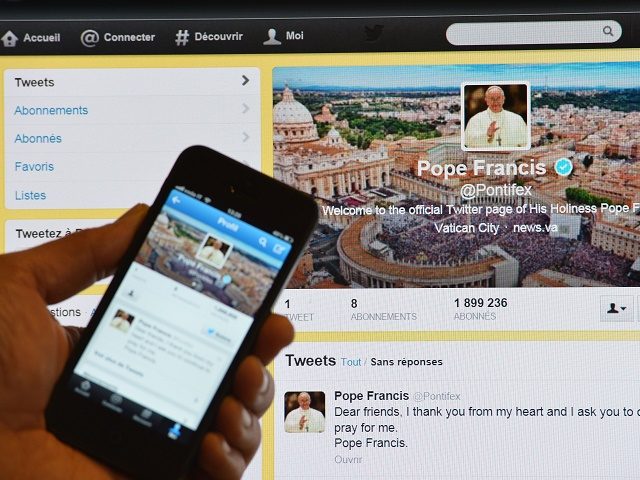In a message to young people Monday, Pope Francis warned today’s youth to beware of the falsehoods behind much of social media and “reality shows,” urging them to live their own lives and to create their own histories.
The Pope’s Message for World Youth Day 2017 carried a drawn-out reference to the hi-tech world in which young people are immersed, comparing the memories of their personal experiences with the computer hardware that stores large quantities of data.
“Yet our memories should not remain crammed together, as in the memory of a hard drive,” Francis said. “Nor can we archive everything in some sort of virtual ‘cloud.’ We need to learn how to make past events a dynamic reality on which to reflect and to draw lessons and meaning for the present and the future.”
But the pontiff reserved his strongest words for modern attachments to social media and so-called reality shows, warning youth that virtual friendships and virtual reality often conceal many falsehoods and are no substitute for real interpersonal experiences.
“In the social media, we see faces of young people appearing in any number of pictures recounting more or less real events, but we don’t know how much of all this is really ‘history,’ an experience that can be communicated and endowed with purpose and meaning,” Francis said.
The Pope himself has made good use of the social media, and a 2015 study proclaimed him to be the most influential person on Twitter for the third year in a row. But despite his own success on social media, he remains skeptical of its real influence.
“Television is full of ‘reality shows’ which are not real stories, but only moments passed before a television camera by characters living from day to day, without a greater plan,” he said in his message to the young. “Don’t let yourselves be led astray by this false image of reality! Be the protagonists of your history; decide your own future.”
Later in his address the Pope returned to the image of the reality show, in a critique of a modern aversion to lifelong commitments such as marriage.
“A society that values only the present tends to dismiss everything inherited from the past, as for example the institutions of marriage, consecrated life and priestly mission,” he said, which end up being seen as “meaningless and outdated forms.”
“People think it is better to live in ‘open’ situations, going through life as if it were a reality show, without aim or purpose,” he said.
In his World Youth Day message, the Pope also stressed the need to cultivate a sense of one’s own history, by remembering and learning from experiences in order to project toward the future.
“To have a past is not the same as to have a history,” he said. “In our life we can have plenty of memories, but how many of them are really a part of our memory? How many are significant for our hearts and help to give meaning to our lives?”
Living as the protagonist of one’s personal history, he said, is aided by “discovering the thread of God’s love running through the whole of our life.”
Even those with a painful or sinful past, he continued, can learn from their history and turn it toward a future good.
“Some of you, particularly those hurt by certain situations in life, might want to ‘reset’ your own past, to claim the right to forget it all,” he said.
“But I would like to remind you that there is no saint without a past, or a sinner without a future. The pearl is born of a wound in the oyster! Jesus, by his love, can heal our hearts and turn our lives into genuine pearls,” he added.
In his preaching, the Pope often makes reference to electronic devices and the modern fascination with social media and virtual reality.
Earlier this month, Francis suggested that people carry around a pocket-sized version of the Bible and that they consult is as often as they look at their cell phones.
Imagine what would happen, Francis reflected, “if we took it out to read it several times a day, if we read the messages of God contained in the Bible as we read the messages on our phones.”
Follow Thomas D. Williams on Twitter Follow @tdwilliamsrome

COMMENTS
Please let us know if you're having issues with commenting.